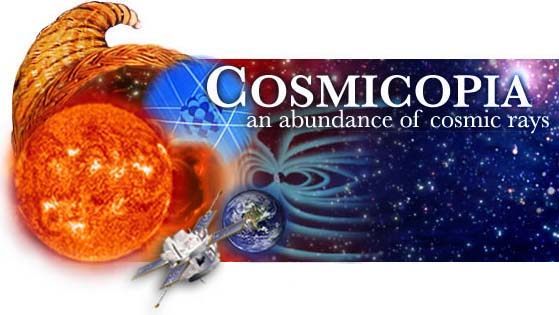
Interview with Dr. Louis Barbier
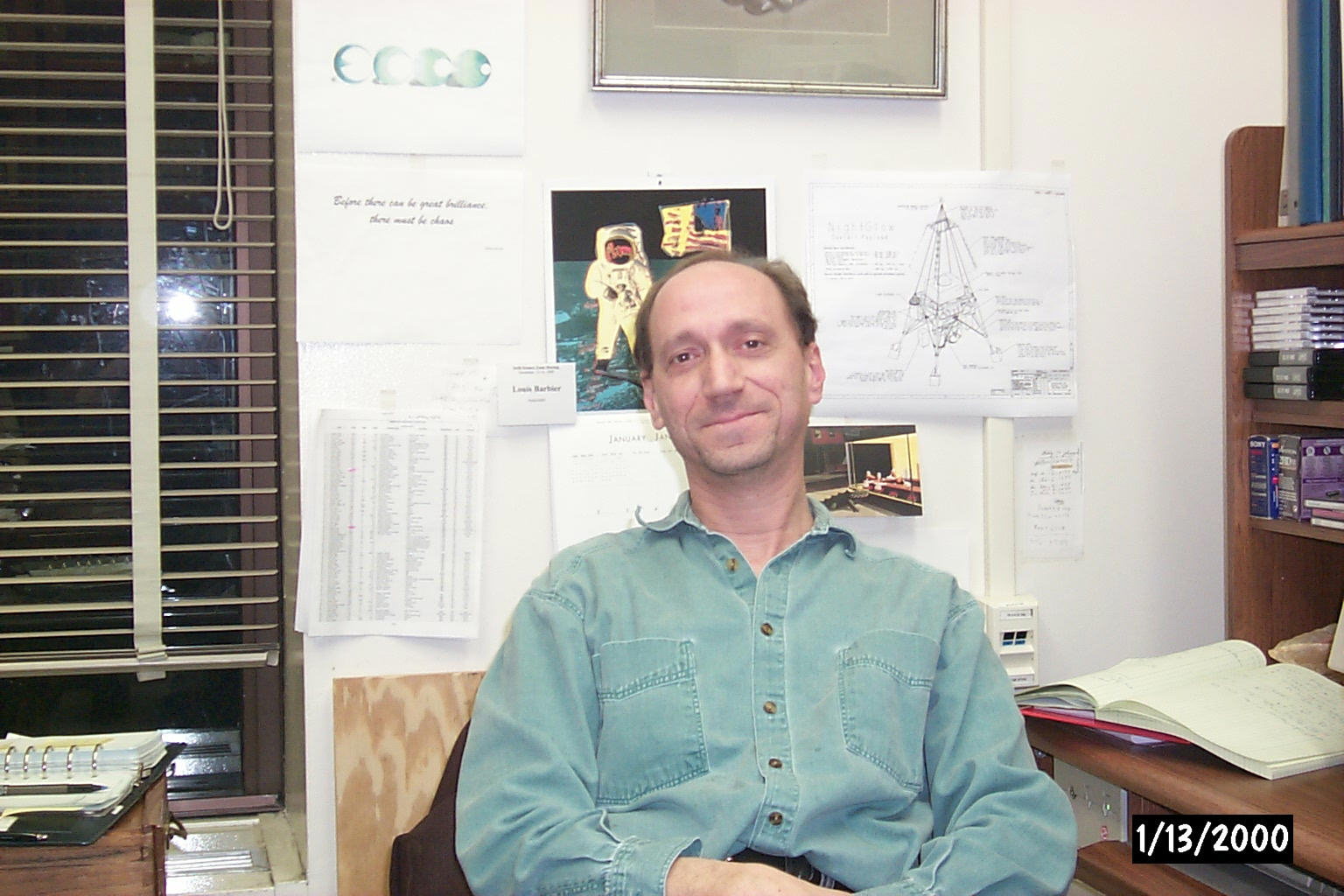
Associate Chief Scientist for the NASA Engineering and Safety Center (NESC)
NASA Deputy Project Scientist for Balloons
NIGHTGLOW -- Principal Investigator
CREAM -- Lead GSFC Co-Investigator
Swift -- Co-Investigator
ECCO -- Study Scientist
ACCESS -- Deputy Study Scientist
EPACT
IMAX
ISOMAX
TIGER
What is a typical day like as an astrophysicist?
Scientists in general all do the same kinds of things, which I would divide up into 4 categories: building equipment & conducting experiments, analyzing data from past experiments, administrative tasks, and studying & "dreaming". How much is spent on each type of task varies a lot for any one person or job.
The first category is what most people think of as what a scientist does. We build and design equipment to measure things that we think are important. This involves electronics, computers, machining, some mechanical engineering, and for more specialized tasks things like lasers, telescopes, magnets, antennas, etc. Once you've assembled all your equipment in the laboratory, you get to run your experiments and see what happens. In my particular job, many of the things I build go into spacecraft or on high altitude research balloons (which fly at about 100,000 feet). So we have to take our experiments and go to some remote site to launch them (perhaps the Kennedy Space Center, or a balloon launch site in Canada).
Once our data has been recorded from our experiments - whether from a lab or a space rocket - we need to spend time analyzing the data. This involves a lot of computer programming, statistics and simulations. Our results are then written up and published in a science journal. (You should go to your local college library and look at some science journals to see what kinds of interesting things are being studied. You might look at the Astrophysical Journal in particular.)
The third category (administrative tasks) is the most boring. You have to write reports for your boss, go to meetings on projects, write grant proposals (money for experiments comes from government "grants" for the most part - scientists "propose" experiments, and if a panel of experts gives them a favorable "grade", they get money to carry them out), serve on committees, etc.
The last part is the best - scientists have to know what other scientists are doing, so you have to spend a lot of time reading and talking to other scientists. You always have to be asking yourself "what if?" questions. This "dreaming" of what you want to do in the future makes science a lot of fun.
What type of a degree is required to get a good position in a reliable job?
In astrophysics in particular one really needs a Ph.D. For non-academic (industry) jobs, a Masters or Bachelors degree may be sufficient.
What is the job market like in this field?
Right now, the overall market is good in that the unemployment rate for physicists is low (1.5 %). Jobs however are often "temporary" - often called "postdoc" (post-doctoral degree) jobs, which typically last only a few years and depend totally on research grants (unlike a faculty job at a university, which is funded by the university). The April issue of Physics Today magazine, for example, has 10 pages of job ads (about 5-10 ads per page).
What will it be like in the future?
Job growth recently has been about 1% per year, but it's hard to predict the future! It is true however that the government spending on science research has been going down for the last 10 years. I expect it will continue to go down for the short-term future anyway.
What is the average salary range in this field?
Median salaries are good: for a Ph.D., about $65,000 per year; for a Master's degree $55,000 per year; and about $50,000 for a BS.
What are some good colleges that offer a strong science program. (In astrophysics or astronomy)?
Lots of places: Princeton, Harvard, Univ. of Maryland, UCLA, Univ. of California at Berkeley, Johns Hopkins, ... the Society of Physics Students could offer a lot of guidance here. They have 700 chapters at colleges and universities around the country. It really depends on your liking: small college vs. large university. Excellent programs can be found all around the country.
What exactly is astrophysics?
Astrophysics is the study of the galaxy, the universe and the objects we "see" when we look out into the sky: black holes, neutron stars, quasars, and galaxies. We study gamma rays, x-rays, look at star formation, and supernova, etc. It's the part of astronomy dealing with the physics and chemistry of astronomical objects and events.
Is there a possiblity for advancement in this field?
Traditional jobs (at universities) offer faculty positions, which can be at a junior level (assistant professor) up to senior level (full professor) and even honorary level. In a research lab, one typically works as part of a team. Over time, one could advance to become a team or project leader. Advancement may not be as easy as for someone who is a "manager" in the traditional business sense.
What high school courses should I be taking to prepare me for college?
As you might have inferred from my first answer about what physicists do, you should have a strong background in computer programming, mathematics (algebra, calculus, and geometry in high school), and if possible, electronics. A course in machining and/or drafting is also very useful for an experimental physicist (as opposed to a theoretical physicist).
What are a few possible employment places for astrophysicists?
Mostly universities and colleges; government laboratories: NASA, Los Alamos, Lawrence Livermore Lab, etc.; and some large companies in the aerospace industry (GE, Rockwell, BOEING, etc.)
Where will this field be in 20 years with all the new technology?
New technology drives this field and vice versa - this field creates a lot of new technologies. The 20th century was a revolutionary one (a "golden era") for astronomy and astrophysics (which did not exist before). I believe we will continue to see revolutionary changes in the next 50 years. It will still be an exciting time to be in science in general, and astrophysics in particular. Two new fields of astrophysics (gravity wave and neutrino astrophysics) will be maturing, new planets will continue to be discovered, new propulsion technologies are being worked on ... the future looks bright to me!
Are there many women in this field? If not, are a woman's chances greater for getting a position?
I would recommend you look for statistics at the American Physical Society (the largest society of physicists in the country) or American Institute of Physics (gives a lot of employment info) Web sites.
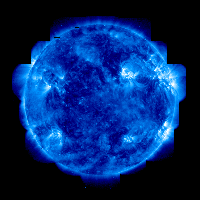
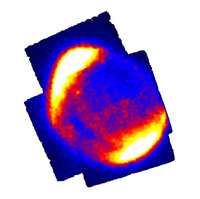
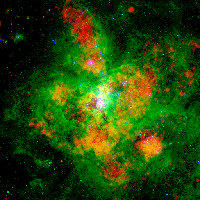
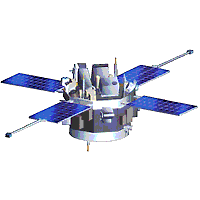
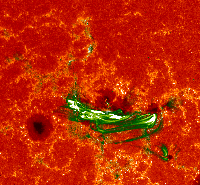
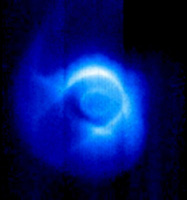
Questions and comments to: cosmicopia@cosmicra.gsfc.nasa.gov
Curator: Dr Eric R. Christian, NASA
Responsible NASA Official: Dr Eric R. Christian
Privacy Policy and Important Notices

HOME
In the News
History
Ask Us
Great Links
Glossary
Site Map
Search NASA